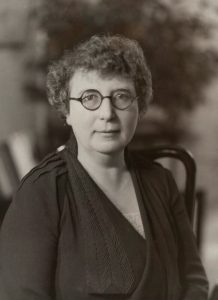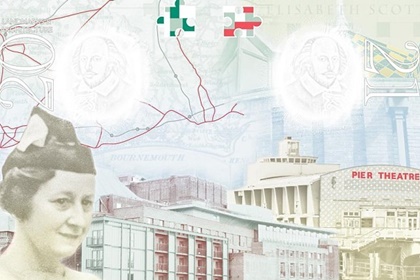Dr DORIS ODLUM 1890-1985

A former member who as a celebrated Consultant Psychiatrist founded a charity now known as Dorset MIND
Dr Doris Odlum, a consultant psychiatrist, was another prominent Bournemouth Soroptimist. Few women attained such positions in the medical profession so early in the 20th Century, and she was well regarded both locally and at national level.
After a secondary education at Talbot Heath School, she went to St Hilda’s College, Oxford and as a student supported women’s suffrage and peace campaigns. She first trained as a teacher but then decided to switch to medicine, attending St Mary’s Hospital Medical School. Her studies here were interrupted since she joined the Women’s Voluntary Reserve Corps during the First World War. Her duties included commanding a forage guard in the New Forest.
But by 1927 she had qualified, and was specialising in psychiatry. She held positions at Lady Chichester’s Hospital in Brighton, followed by appointments at Maudsley and Elizabeth Garret Anderson’s, in London.
In 1928 she persuaded the Board of the Royal Victoria Hospital, Boscombe to appoint her as a Consultant Psychiatrist. Her first application for the position was refused on the grounds of her sex since they had never employed a woman at this level before. She prevailed and remained at RVH for the remainder of her career. She wrote many books, including, “ Adolescent and Child Psychiatry”, and later endowed a research prize at the British Medical Association. She was a co-founder of both the psychiatric department and child guidance clinic at the R.V.H.
Doris was involved with numerous organisations such as the Medical Women’s’ Federation, The Medical Women’s Association, The European League for Mental Hygiene and was a Foundation Fellow of the Royal College of Psychiatrists.
In 1947, Doris’s energy and insight lead her to help found The Bournemouth Association for Mental Health- a charity now known as Dorset MIND. In 1948, as part of the BMA‘s Psychological Medicine Group she helped convince the Government to include mental health treatment in the new National Health Service. She was also heavily involved in the formation of the local branch of the Samaritans and in 1973 was made Life President.
Doris gave very interesting talks to members of our Club, keeping them informed of developments in her field and raising awareness of progress in the treatment of those suffering from mental health issues. One of our current members, Pam Baker, remembers Dr Odlum from her own time at the Royal Victoria Hospital. She describes her as someone ” with a strong personality”, but said that where her patients were concerned she had a ” kind and deep understanding of their varied problems”.
A worthy tribute to a remarkable woman.


